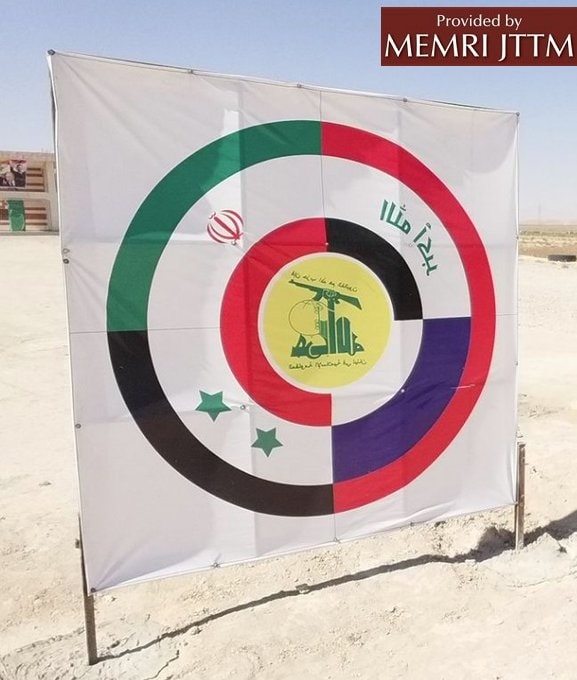The invasion of Ukraine in February 2022 decisively demonstrated Russia's repudiation of international law and order. Despite Moscow's counterclaims, successive international bodies have determined that the Russian invasion constitutes an illegal use of force.[1] The UN High Commissioner for Human Rights moreover estimates that the large-scale attack by Russia is responsible for at least 23,606 civilian casualties in Ukraine.[2] It also assesses that more than 8,255,288 Ukrainians have been forced to flee their homes seeking safety, protection, and assistance.[3]
The threat posed by Russia to Europe's security is thus clear and immediate. Yet, the invasion also has implications for U.S. interests in regions beyond the continent, especially as Moscow – facing international isolation – seeks to deepen relations with malign actors that share a common interest in "resisting" perceived U.S. hegemony.
In the Middle East, Russia has long cultivated ties to U.S.-designated state sponsors of terrorism Iran and Syria, and the foreign terrorist organizations (FTOs) which Iran supports, such as Hamas, Lebanese Hizbullah, Iraqi militias including the Al-Nujaba' Movement and Asa'ib Ahl Al-Haqq (AAH), and non-designated Iranian proxies such as Iraq's Badr Organization and Yemen's Houthis. Collectively, the Iran-led network of state and non-state actors is known as the "Axis of Resistance."

A banner in Palmyra, Syria, featuring the flags of Russia, Iran, Iraq, Syria, and Hizbullah.[4]
Since the invasion of Ukraine, Russia has built on these longstanding ties to expand diplomatic, military, and economic relations with such groups. These Russian efforts point to the emergence of a budding alliance between Russia and the Axis of Resistance. Indeed, Iran-backed social media outlet have even heralded Russian President Putin in promotional videos as the "Man of the Axis [of Resistance]."[5]
This report documents Russia's wartime contacts with Iran-backed designated terrorist groups across the Middle East, including Hamas, Lebanese Hizbullah, Iraq's Al-Nujaba' Movement and AAH, as well as non-designated Iran-backed groups such as the Badr Organization and Yemen's Houthis. A review of Russia's historical relations with these Iranian proxies are also provided for context, where appropriate.
Among the report's key insights:
-
Russia has openly and regularly courted U.S.-designated terrorists and terrorist facilitators during its invasion of Ukraine, consistent with Moscow's longstanding policy of engagement with Iranian proxies in the Middle East. Such engagement undermines U.S. counterterrorism efforts.
-
Russian Deputy Foreign Minister and Special Representative to the Middle East and Africa Mikhail Bogdanov is the linchpin of Russia-Axis of Resistance relations; the high-level career diplomat has long managed Russia's engagement with Iran-backed terrorist groups, regularly meeting with their leaders, both in Russia and the Middle East.
-
Moscow's wartime contacts with a designated Lebanese Hizbullah financier, Hassan Moukalled, suggests that Russia and Hizbullah are coordinating on sanctions evasion, money laundering, and possibly weapons transfers.
-
Russia – via its Ambassador to Iraq Elbrus Kutrashev – has deepened diplomatic outreach to the Iran-backed militias in Iraq, which are playing a greater role in Iraqi politics under the current militia-supported Government of Prime Minister Shia Al-Sudani.
-
Moscow likely seeks to leverage growing relations with the Iraqi militias to increase Russian weapons exports to Iraq in a bid to challenge the U.S. for geopolitical influence in the country. Additionally, open-source reporting suggests that the Iran-backed militias have facilitated weapons transfers to aid Russia's war effort.
-
The confirmed death of an Iraqi national fighting for the Russian Wagner Group in Ukraine and his subsequent eulogy by Iran-backed Iraqi social media channels, raises the risk that Iraqi militias are aiding in Russian Middle Eastern recruitment efforts for its war in Ukraine.
-
In Yemen, Moscow likely seeks to leverage its friendly relations with the Houthis to expand its influence over Yemen's peace process. Such efforts – which have accelerated during the Russia-Ukraine war – present strategic risks to U.S. interests and regional security, as entrenched Russian influence in Yemen could position it to establish future basing on strategic waterways in the long-term.
The above visual depicts meetings between Russian officials (left) and Iranian proxy leaders (right) since the invasion of Ukraine.
The full text of this post is available to subscribers.
Please login or register to request subscription information from MEMRI





